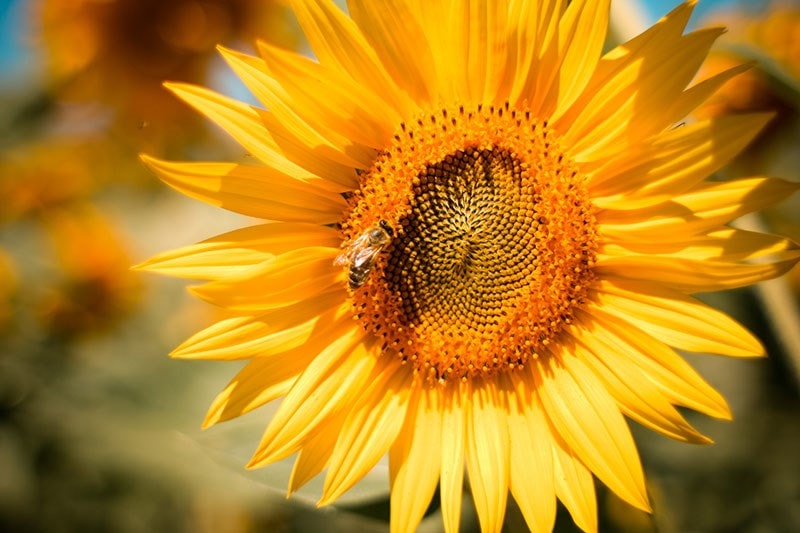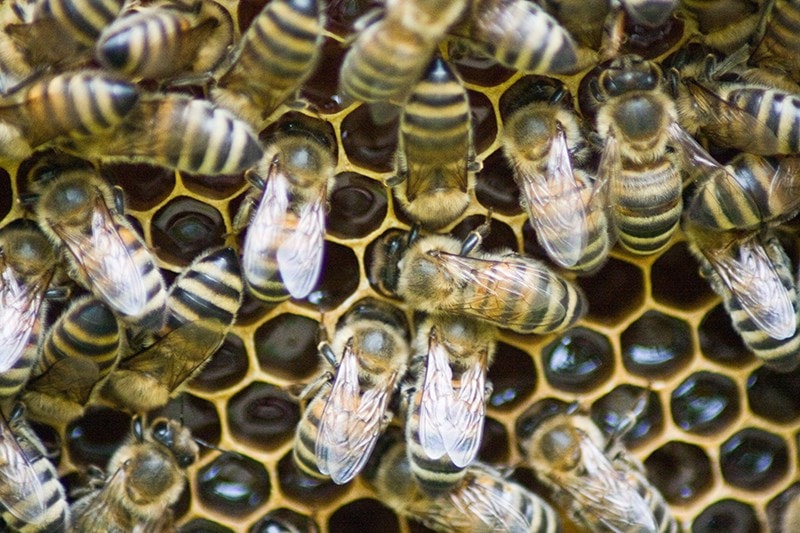The Buzz on 'Pro-bee-otics'
The long-term survival of the humble honeybee is a subject of some concern. Some fear a ‘Beemageddon’ event which could wipe out global populations of this indispensable insect. That’s shocking news, but what does this have to do with probiotics?

Well, those who keep an eye on our blog will have seen our blog post - ‘Do bees have their own probiotics?’ Apparently, beehives are home to many lactic acid bacteria, such as Lactobacillaceae and Fructobacillus, which help them to digest their food. Pretty interesting stuff, right? But can probiotics help to prevent the ‘Beepocalypse’ that’s being forecast, as the global use of neonicotinoid pesticides threaten our bee populations worldwide?
Pro-bee-otics? Really??
Researchers at the University of British Columbia (UBC) have been applying science to the problem, and trying to come up with a defence system for our apians under attack, because if bee populations were to significantly decline, the ramifications could be devastating:
“We rely heavily on bees for our food. They pollinate more than $15 billion worth of crops in the U.S. every year, but they are dying at alarming rates. We wanted to address an important issue with a worldwide impact.” UBC student Yu Qing Du.
The UBC team have been working on a combination of micro-organisms that could potentially help to form a digestive defence mechanism for the honey bee. The students have very appropriately christened their new compound ‘Pro-bee-otics’, and they hope that it will help to preserve our precious bee populations for the future. The new pro-bee-otic is reported to help break down neonicotinoids in a bee’s digestive system – a crucial mechanism of action as neonicotinoids such as acetamiprid, clothianidin, imidacloprid, thiacloprid, and thiamethoxam, are some of the most widely-used pesticides in the world. They are particularly effective as they are systemic, entering all areas of the plant, including the pollen and nectar that is taken up by the honey bee.
“Neonicotinoids are the most widely used pesticides because they harm insects but not mammals like people.” Jeanne Chan, student at UBC.
The exciting new project is being put together as part of a US competition, the International Genetically Engineered Machine, and it’s hoped that the presentation by the students will provoke sufficient interest to attract the funding necessary to bring the concept out of the laboratory and into commercial use. The researchers believe that the probiotic could prove to be a viable alternative that would enable pesticides to continue to be used – currently many of them are banned due to their potential effects on bees, but farmers then complain that their crops suffer dramatically.
"As it stands right now, pesticides are essential for modern agriculture. The European ban on neonicotinoids was recently temporarily suspended for 120 days in England to help farmers protect crops from the cabbage stem flea beetle. We need to keep exploring different avenues to deal with this issue." Yu Qing Du.

The students are proposing that, once developed, the ‘pro-bee-otic’ could be commercially viable and easily administered in a sucrose medium to worker bees who would carry the substance back to their colonies. It’s not known which species and strains of bacteria are being used in the new probiotic, but the formula is likely to be very specific. The research is still in the early stages, but we can’t wait to find out what the Bee-biotics are!
“It’s a difficult process because there’s not much research on the bacteria we’re working with,” We’ve been trying different ways to get the genes into the bacteria.” Darren Christy, UBC student.
Sounds like another example of the power of probiotic strain specificity. Let's hope our honey bee friends enjoy their tasty 'miel' (l couldn't resist).
References
- Pesticide Action Network: http://bees.pan-uk.org/neonicotinoids
- University of British Columbia; (2015) UBC Students give bees a chance; Online:
- http://news.ubc.ca/2015/09/18/ubc-students-give-bees-a-chance/
Popular Articles
View all General Health articles-
General Health03 Nov 2023
-
General Health12 Apr 2024
-
General Health12 Jan 2024


